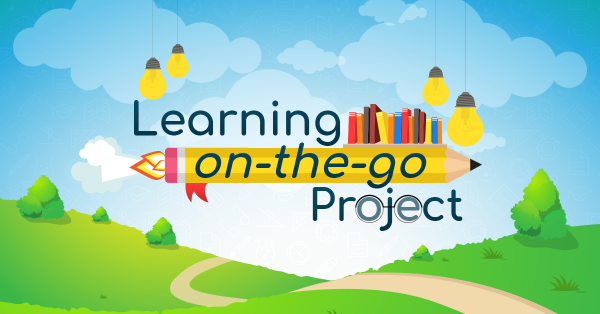Table of Contents
Learning-on-the-go Project
Invest in experience. Experience learning.
The Learning-on-the-go Project provides opportunities for immersive, experiential “field school” learning for K-12 students in rural areas. Meant to enhance the formal curricular programs of local schools, the project is a partnership among local schools and universities, stakeholders, and sponsors. This project consists of two related modules: (1) the Local Field Trip and (2) Artifact Archival and Packaging.

With “extra” resources that this project brings into the learning context, we hope to enhance the engagement of students while at the same time provide them with the opportunity to appreciate better the local environment.
See also: Q&A–the Learning-on-the-go Project
Keywords: active learning, curricular enhancement, experiential learning
Local Field Trip
This module is an instructionally designed field trip for a class to visit a nearby site where learning could be reinforced by a relevant natural environment, local event or setting. The trip is meant to incorporate out-of-classroom engagement into the formal lessons of the class. The module will be designed jointly by the teacher and a resource person from a university (preferably located near the local school). Possible alternatives to resource persons from a university nearby are balik talents–those from the local community with advanced training, education or profession relevant to the field trip.
Possible events or sites to visit include local volcanoes, a lumad festival, a local cultural festival, a river bank, a farm, a factory, a cemetery, an archaological excavation site, a government agency, an NGO, a university lab, etc.
The Learning-on-the-go Project isn't just any field trip. Equally important is the post-processing of the field trip experience by transforming it into distilled shareable personal knowledge “nuggets” described in the next module.
See also: Field Trip Tips
Artifact Archival and Packaging
This module includes the collection of relevant artifacts from the field-trip site, processing them, and transforming such materials into engaging presentation packages. The time the student spends for this module is likely longer than the field trip itself. The processing of the artifacts entails the generation of relevant metadata for inclusion in the local elibrary or repository (see, for instance, lib.mainit.org). Storing them properly is also important.
Meant to develop higher-order thinking skills, the presentation packages about the learning may include creative outputs in the form of 3-minute videos, infographics, posters, learning packets. The outputs can be archived or curated online. Students are encouraged to compile and archive the source files (like .psd, .aep, .aup, etc.) of their outputs and provide sufficient documentation, so future students with similar work can build on previous projects with greater ease.
video peg (student-made, but please note this video took a year to make!):
The collected or archived artifacts may also be kept for possible curation and presentation later. They may form part of a local exhibit that can periodically be re-organized for various purposes. Possible exhibits include the “natural history” of a place, the cultural heritage of a town, area-specific flaura and fauna, etc.
Funding and Other Support
Funding support for these modules may come from philanthropic groups and stakeholders to cover for transportation and food, rentals (venue, equipment, etc), modest honoraria of resource persons, expenses related to ocular inspection and acquisition of permits, storage containers, prizes, production materials, etc.

In consultation with sponsors and stakeholders, a budget approval process will be put in place prior to the implementation of the project. Application for funding support may be sent to [email protected]
As important as the funds is the participation of sponsors and stakeholders in the process. Sponsors and other stakeholders may also consider putting together a pool of resource persons who can share expertise for relevant local field trips or post-trip activities.
Benefits
The benefits of this Project include
- enhanced instruction
- greater student engagement
- critical thinking skills (Greene, Kisida, & Bowen, 2013)
- appreciation of the local environment
- pickup skills for the students: collaboration skills, digital archiving, video production, graphic design, etc.
- mobilization of additional human resources (local experts, balik talents, etc.)
Feedback
Comments and suggestions may be sent to [email protected]